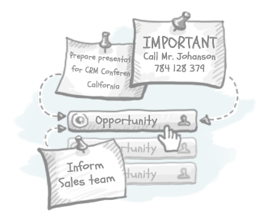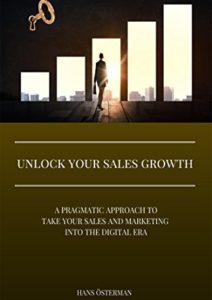Recent statistics that have been making the rounds in sales strategy seminars seem somewhat alarming: that 70 percent of buying decisions are made in advance of ever contacting a salesperson; and that 57 percent of the buying process is completed prior to engaging with any sales rep.
If a buyer is so educated by the time he or she speaks to a salesperson, how can that sales rep hope to sway the buyer in the direction of purchasing the rep’s product?
 The answer is through insight selling. Insight selling uses the approach of being an expert on the industry and on the salesperson’s product or service; being as much of an expert as possible on the buyer’s company and providing insightful help to the buyer. With the advent of easily accessible information and reviews on just about any product and their competing products now available to any buyer, the day of getting by on sales expertise alone is a thing of the past.
The answer is through insight selling. Insight selling uses the approach of being an expert on the industry and on the salesperson’s product or service; being as much of an expert as possible on the buyer’s company and providing insightful help to the buyer. With the advent of easily accessible information and reviews on just about any product and their competing products now available to any buyer, the day of getting by on sales expertise alone is a thing of the past.
Here are 6 keys to insight selling.
#1: Knowledge of Product
While knowing your own product might seem a bit of a “no-brainer,” there are various levels of product knowledge. For example, how many times have you yourself been inquiring into an aspect of a product and the salesperson said, “I believe we can do that, but let me make sure and get back to you.” While honesty is certainly better than providing misleading or incorrect information, the best approach is to know that answer on the spot. If it accomplishes nothing else in helping you close that particular sale cycle, it has at least taken time out of the equation. At best, though, the buyer has gained confidence and trust in you, as you clearly are knowledgeable about the product you are selling.
#2: Knowledge of Industry and Buyer
There is of course general knowledge of an industry, which most salespeople have. But what of the latest trends? What might be coming up on the horizon? What is the general economic outlook, and how might that affect their purchase? Having such detailed information not only makes you look informed, but it also provides genuine help to the buyer.
Beyond knowledge of the industry, though, in the B2B sales process, the knowledge of the buyer’s company itself is also vital. What specific issues are they encountering? What problems might they be trying to solve with your product or service? Herein lies a vital key to insight selling—for if you don’t fully understand the buyer’s company needs and issues, you’re not going to get to first base with that sale.
If you have some of the answers to these questions even before you speak to the buyer you can really come across like a genius. But lacking that, probably the most important skill of insight selling comes into play.
#3: Asking and Listening
Traditionally, salespeople are talkers. There is a good reason for this—the tried and true approach to selling is the almighty pitch. But as we’ve already pointed out, the age of the pitch is being replaced by the age of insight. And insight selling comes about not through talking, but by listening.
You should have a ready set of questions so you can discover the issues that led to the buyer inquiring about your product or service. You should find out how your product or service would be implemented. You should get a grasp on what kind of benefit your product or service could provide.
#4: Fulfilling of Need
Once you have obtained a full understanding of the buyer’s company and its needs, you then have opened the door to pitch your product or service. But this cannot be a canned pitch—it must be tailored to the needs of the buyer you obtained through the fine art of listening. Once you have addressed all possible buyer-expressed needs, you can then move on to other features that might also benefit the buyer’s company.
Operating in this way, you are demonstrating to the buyer that you have indeed understood his or her company’s situation, and that you have insightful answers to it.
#5: Competition
In your conversation with the buyer, the topic of a competitor’s product or service might well come up. You should be prepared for such an eventuality with information on what your product has over the competition. There are some good rules of thumb to follow in regards to competition, however:
a) If the topic doesn’t come up, don’t bring it up yourself. As more than one sales pundit has pointed out through the years, you help sell your competitor’s product just by mentioning it.
b) In countering a competitor’s product or service, use facts, not slanderous remarks or exaggerations as there is no place for that in insight selling. You’re there to provide genuine help to your prospect. So far in the conversation, you’ve been providing that help in the form of actual data. Keep it within that framework.
 #6: A Leading-Edge CRM Solution and Insight Selling
#6: A Leading-Edge CRM Solution and Insight Selling
The plentiful data a sales force is gathering in this new age of insight selling has to go into a repository, from which it can be easily accessed and utilized. If that repository is a spreadsheet or the salesperson’s own notes, the sales rep may have trouble quickly relocating vital information he or she may need in the sales cycle. But beyond that without opportunity management, any other salesperson having to take over the sale would be woefully lacking the vital information necessary for the close, with sales management no less in the dark.
The many benefits provided by insight sales are pretty much lost without a leading-edge CRM solution. With such an application, the data provided through insight selling is always available–within in the sales process step to which it applies, and for anyone who needs it.
The B2B buyer landscape is radically changing. Today’s sales strategies are powered by insight selling.
Learn all about the CRM solution you need for tracking insight selling. Sign up for our free webinar.










